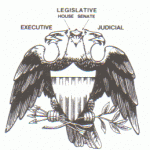It should come as no surprise that Professor Fallone and I disagree on Judge Sumi’s decision in Ozanne v. Fitzgerald. I particularly take issue with his suggestion that criticism of the decision is the product of “sloppy lawyering.” In my view, that characterization is unfair and inaccurate. Nor is the legal – as opposed to political – criticism of Judge Sumi based on something other than the merits of this particular case. I have commented extensively on this case in the national and local media and have refused to question Judge Sumi’s character or competence. Of course she did her job. But there are multiple reasons for “fuss” about the merits of the decision. Let’s try one.
Criticism of the notion that a court may invalidate an act of the legislature (as opposed to acts of local units of government subordinate to the legislature) is not based on “sixty year old” precedents. The Zimmerman and Goodland cases go to whether a court can enjoin publication of an enacted bill. That’s a different issue.
The idea that a court may not invalidate an act of the legislature for failure to comply with a statutory (as opposed to constitutional) restriction on legislative procedure is based on a long and unbroken string of cases beginning with McDonald v. State, 80 Wis. 407, 411-12, 50 N.W. 185 (1891) and most recently restated in the very case that Judge Sumi now relies on, Milwaukee Journal Sentinel v. Department of Administration, 2009 WI 79. The rationale for the rule was stated in State ex rel. La Follette v. Stitt, 114 Wis.2d 358, 338 N.W.2d 684 (1983):
Courts are reluctant to inquire into whether the legislature has complied with legislatively prescribed formalities in enacting a statute. This reluctance stems from separation of power and comity concepts, plus the need for finality and certainty regarding the status of a statute, Baker v. Carr, 369 U.S. 186, 215, 82 S.Ct. 691, 709, 7 L.Ed.2d 663 (1962). Although since Marbury v. Madison, 5 U.S. (1 Cranch) 137, 2 L.Ed. 60 (1803) courts have had the authority to review acts of the legislature for any conflict with the constitution, courts generally consider that the legislature’s adherence to the rules or statutes prescribing procedure is a matter entirely within legislative control and discretion, not subject to judicial review unless the legislative procedure is mandated by the constitution. 73 Am.Jur.2d Statutes, sec. 49, p. 296. If the legislature fails to follow self-adopted procedural rules in enacting legislation, and such rules are not mandated by the constitution, courts will not intervene to declare the legislation invalid. The rationale is that the failure to follow such procedural rules amounts to an implied ad hoc repeal of such rules.
Id. at 364-365.
Thus, even if – as everyone agrees – the Open Meetings law applies to the legislature – failure to comply with it may not result in invalidation of a legislative action (as opposed to, say, sanctions against individual legislatures). Indeed, the very case relied on by Judge Sumi for the proposition that the Open Meetings Law applies to the legislature –State ex rel. Lynch v. Conta, 71 Wis.2d 662, 239 N.W.2d 313 (1976) – recognizes that very distinction. It could issue declaratory relief as to the actions of individual legislatures and impose forfeitures upon them because it was not interfering with “the functions or separate power of the legislative branch,” id. at 698, and expressly stated that “[t]he case is accepted, as not contrary to separation of powers, in that it concerns application of the forfeiture penalty to members of a body, not to the branch of government.” Id. at 700.
Ed – and Judge Sumi – want to suggest that this line of cases was somehow broken by Milwaukee Journal Sentinel. As I explained on my personal blog, Judge Sumi flatly misstates what happened in Milwaukee Journal Sentinel. Ed agrees, but argues that what he calls a “regrettable error” has no impact on the validity of the analysis. I respectfully disagree. Here’s why.
 During oral argument this past Monday in Ozanne v. Fitzgerald, the Wisconsin Supreme Court was asked to rule that the Open Meetings Law violates the Wisconsin Constitution to the extent that the law grants authority to the Wisconsin circuit courts to void legislative enactments passed in violation of its provisions.
During oral argument this past Monday in Ozanne v. Fitzgerald, the Wisconsin Supreme Court was asked to rule that the Open Meetings Law violates the Wisconsin Constitution to the extent that the law grants authority to the Wisconsin circuit courts to void legislative enactments passed in violation of its provisions.
